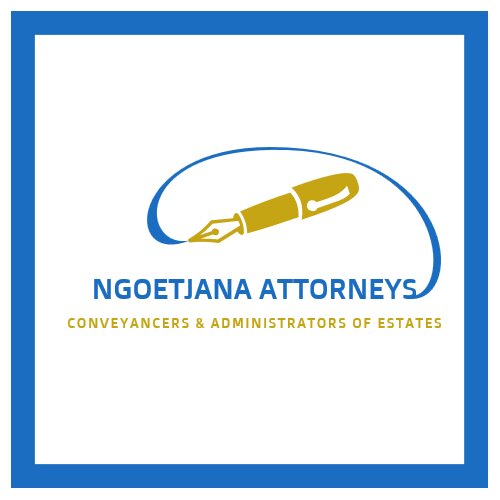Best Collaborative Law Lawyers in Centurion
Share your needs with us, get contacted by law firms.
Free. Takes 2 min.
Free Guide to Hiring a Family Lawyer
List of the best lawyers in Centurion, South Africa
About Collaborative Law in Centurion, South Africa
Collaborative Law is an innovative approach to resolving legal disputes, most commonly used in family law matters such as divorce, parenting arrangements, and division of property. In Centurion, South Africa, Collaborative Law provides an alternative to traditional litigation by promoting negotiation, transparency, and cooperation between parties. This voluntary process involves both parties and their specially trained lawyers working together to find mutually agreeable solutions without going to court. The goal is to reduce conflict, maintain respect, and arrive at settlements that are tailored to the specific needs of all involved.
Why You May Need a Lawyer
Collaborative Law can be an ideal solution for individuals seeking to resolve disputes amicably, but navigating the process without knowledgeable legal support can be challenging. Common situations where you may require a lawyer include:
- Divorce or separation, particularly when both parties wish to avoid court proceedings
- Negotiation of parenting plans or child custody agreements
- Division of assets and debts in a respectful and structured manner
- Resolving maintenance (alimony or child maintenance) issues outside of a courtroom
- Drafting and formalizing agreements to ensure legal enforceability
- Handling complex or high-conflict family disputes with a desire for privacy and cooperation
- Situations where keeping an amicable relationship is in the best interest of any children or business ventures
Lawyers trained in Collaborative Law serve not only as legal advisors but also as facilitators who help manage emotional and practical aspects, increasing the likelihood of a durable and satisfactory agreement.
Local Laws Overview
Collaborative Law in Centurion operates within the broader framework of South African family and civil law. Here are key aspects of local regulations relevant to Collaborative Law:
- Voluntary Process: Both parties must agree to use the collaborative approach, and can withdraw at any stage.
- Good Faith Negotiation: Participants commit to transparency and full disclosure of all relevant information.
- Interdisciplinary Team: Collaborative teams may include family therapists, financial advisors, or child specialists as needed.
- Legal Recognition: While collaborative agreements are not automatically binding, they can be converted into court orders to ensure enforceability.
- Confidentiality: Discussions and disclosures made during the collaborative process cannot be used as evidence in court if negotiations break down.
- Withdrawal Clause: If either party chooses to litigate, the collaborative lawyers must withdraw from the case, ensuring all efforts remain within the process.
Centurion residents benefit from collaborative professionals who understand both the procedural rules and the unique dynamics of the local legal landscape.
Frequently Asked Questions
What is Collaborative Law?
Collaborative Law is a dispute resolution process where parties and their lawyers commit to solving disputes outside of court by working together transparently and respectfully.
How is it different from mediation?
In mediation, a neutral third party facilitates discussion but does not represent either side. In Collaborative Law, each party has their own lawyer advocating for their interests while still working cooperatively.
Can collaborative agreements become legally binding?
Yes, once an agreement is reached, it can be made an order of the court, which gives it the same legal weight as a court judgment.
What types of disputes are suitable for Collaborative Law?
It is most commonly used for family matters like divorce, maintenance, child custody, and property division, but it can also be applied to civil and commercial disputes.
Is Collaborative Law suitable for high-conflict situations?
It may not be appropriate if there is a significant power imbalance, history of abuse, or unwillingness to cooperate, but experienced collaborative professionals can often manage moderate conflicts.
What happens if the collaborative process fails?
If the parties cannot reach an agreement, they may proceed to litigation, but the collaborative lawyers are not permitted to represent them in court to ensure process integrity.
How long does the collaborative process usually take?
It varies depending on complexity, but collaborative law cases are generally resolved faster than traditional litigation due to open communication and scheduled meetings.
Is the process confidential?
Yes, all discussions and disclosures made during the process are strictly confidential and cannot be used in court if the collaborative approach is abandoned.
Do I need a specially trained lawyer?
Yes, it is essential to work with a lawyer who is trained in Collaborative Law to ensure proper guidance through this unique process.
What are the costs compared to court litigation?
Collaborative Law is typically more cost-effective than litigation since it avoids lengthy court processes and focuses on settlement rather than protracted disputes.
Additional Resources
Several organizations and governmental departments offer support and further information on Collaborative Law in Centurion, South Africa. Some useful resources include:
- Law Society of South Africa - for finding trained collaborative practitioners
- South African Association of Collaborative Professionals - network of collaborative lawyers and allied professionals
- Department of Justice and Constitutional Development - for information on legal rights and family law procedures
- Centurion branch of Legal Aid South Africa - for free or reduced-cost legal advice if you qualify
- Family Justice Clinics or mediation centers serving Centurion and the wider Gauteng province
Next Steps
If you believe Collaborative Law may be the right fit for your situation, taking the first step is straightforward:
- Consult with a lawyer trained in Collaborative Law to assess your case and explain your options
- Discuss the process with the other party to ensure shared commitment to collaboration
- Gather relevant information and prepare documentation regarding assets, children, and financial matters
- Schedule an initial collaborative meeting with all parties and their lawyers
- Work together to develop solutions in a series of structured meetings, calling on neutral experts if necessary
- Once an agreement is reached, formalize it and, if appropriate, submit to court for approval as an order
Seeking professional advice early will help you understand the full range of options available and guide you toward a fair and effective resolution.
Lawzana helps you find the best lawyers and law firms in Centurion through a curated and pre-screened list of qualified legal professionals. Our platform offers rankings and detailed profiles of attorneys and law firms, allowing you to compare based on practice areas, including Collaborative Law, experience, and client feedback.
Each profile includes a description of the firm's areas of practice, client reviews, team members and partners, year of establishment, spoken languages, office locations, contact information, social media presence, and any published articles or resources. Most firms on our platform speak English and are experienced in both local and international legal matters.
Get a quote from top-rated law firms in Centurion, South Africa — quickly, securely, and without unnecessary hassle.
Disclaimer:
The information provided on this page is for general informational purposes only and does not constitute legal advice. While we strive to ensure the accuracy and relevance of the content, legal information may change over time, and interpretations of the law can vary. You should always consult with a qualified legal professional for advice specific to your situation.
We disclaim all liability for actions taken or not taken based on the content of this page. If you believe any information is incorrect or outdated, please contact us, and we will review and update it where appropriate.













